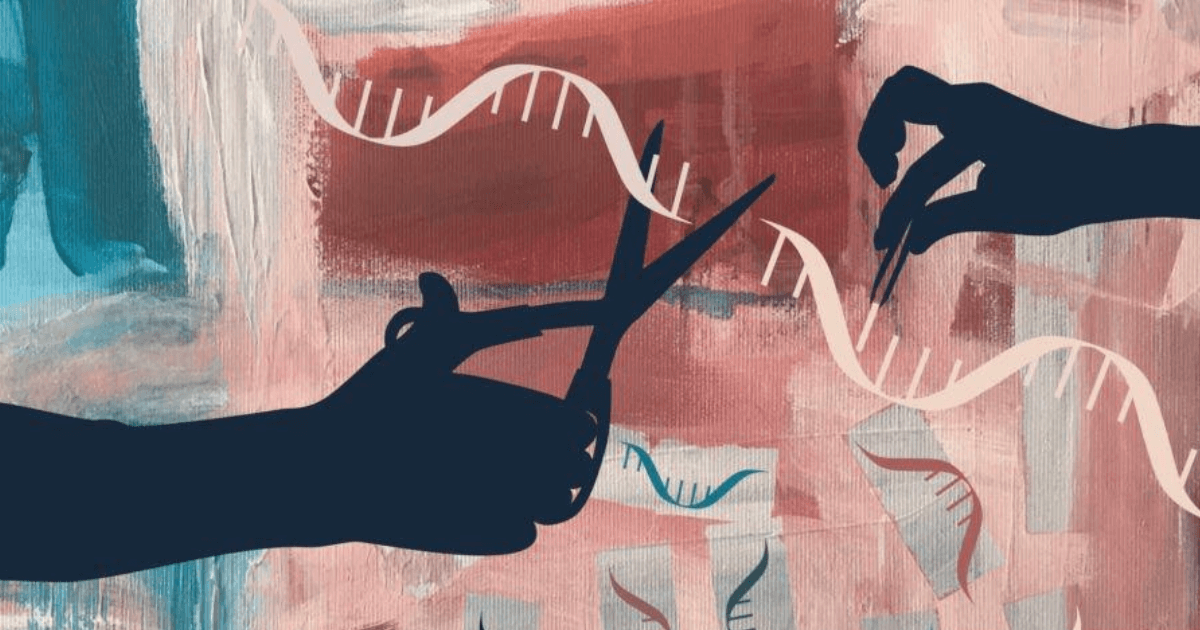The inspiration for the technique goes well beyond our imagination as something as wide-ranging as CRISPR-Cas9 was adapted based on a self-immune defense mechanism naturally occurring in micro creatures like bacteria against viral attack.
Gene Editing has always been one of the intriguing topics amongst research scientists who are in constant inquisitiveness to know the enhanced human health. Every other outbreak of a deadly disease drives emphasis of scientific research towards Genomic studies and alteration of even more. CRISPR-Cas 9 has emerged as a magic potion that has aided in such directed scientific research and studies whilst promising a revolutionary future in human health and medicine. As uncanny as it sounds, CRISPR-Cas9 is an intricate, high throughput technique that is the most sought after amongst Molecular biologists.
CRISPR stands for Clustered Regularly Interspaced Short Palindromic Repeat and Cas-9 stands for CRISPR associated endonuclease-9. The technique marks a significant genetic tool that helps in substantial modification of genomic sequences of human DNA aiding in correction of potential diseases and genetic defects that an individual might be subjected to. The inspiration for the technique goes well beyond our imagination as something as wide-ranging as CRISPR-Cas9 was adapted based on a self-immune defense mechanism naturally occurring in micro creatures like bacteria against viral attack. The mechanism enables bacterial creatures to capture the viral DNA segments and integrate them into their own in a manner that creates segments known as CRISPR arrays. Then, the bacteria sustains a memory of the viral attack in the form of CRISPR arrays and allows generation of respective RNA segments, recognizing and attaching to the viral DNA which is further spliced by Cas-9 enzyme thus disrupting the virus, during the next attack.
CRISPR-Cas9 has successfully aided in genome editing in plants giving rise to gene knockout mutants that would, otherwise, have been a great deal of time through conventional breeding methods.
The technique possesses widespread implications in plant science research, specifically crop improvement, which is one of the crucial concerns of today’s era. The crop health is vital for a healthy mankind which necessitates use of such revolutionary genetic tools to enhance crop quality and lessen susceptibility to diseases. CRISPR-Cas9 has successfully aided in genome editing in plants giving rise to gene knockout mutants that would, otherwise, have been a great deal of time through conventional breeding methods. Besides doing wonders in Gene Therapy, CRISPR-Cas9 has proven efficiency in all sorts of genetic alterations such as Gene Activation and Silencing and production of Gene knock-in and knock-out mutants for research purposes.
While hailing this technique for scientific research in Human health and medicine, the potential concerns associated with it can’t be overlooked. The CRISPR-Cas9 based DNA editing, however currently restricts Genome modifications to somatic cells and refrains its implications to germ cells which would significantly infer the changes being passed on to the future generations. But the ever-transforming era that we currently are surviving in, we are not very far from witnessing such techniques being utilized to all possible extents including germ cells for mercenary gains. The possibilities would include enhancing or altering normal human traits (such as height, IQ or skin colour) based on personal preference. Considering the bright prospects that CRISPR-Cas9 in gene editing holds, it is yet another important aspect to establish a well-planned set of ethical rules and regulations or code of conduct to be always implemented in all research workplaces carrying out such intensive research-based techniques. The gene editing technique utilizing CRISPR-Cas9 is though one of the most explored techniques by research scientists but still holds extensive potential in Animal and Plant Biotechnology for improved health of mankind.
“Composed by: Aakriti Sharma, an aspiring Biotechnologist from Delhi, India. She is an avid reader, a passionate writer and a consultant in the IP domain. Belonging to scientific background has always inspired her to embrace even the smallest things in life based on her scientific acumen.”

